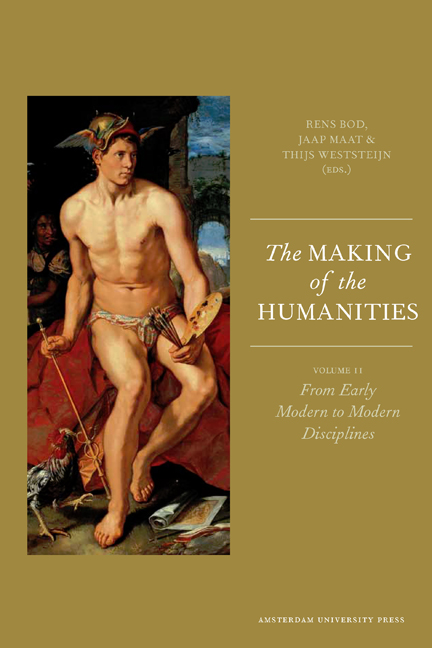Book contents
- Frontmatter
- Contents
- Introduction: The Dawn of the Modern Humanities
- I Linguistics and Philology
- II The Humanities and the Sciences
- III Writing History and Intellectual History
- IV The Impact of the East
- V Artworks and Texts
- VI Literature and Rhetoric
- VII Academic Communities
- Contributors
- List of Figures
- Index
The Impact on the European Humanities of Early Reports from Catholic Missionaries from China, Tibet and Japan between 1600 and 1700
Published online by Cambridge University Press: 19 January 2021
- Frontmatter
- Contents
- Introduction: The Dawn of the Modern Humanities
- I Linguistics and Philology
- II The Humanities and the Sciences
- III Writing History and Intellectual History
- IV The Impact of the East
- V Artworks and Texts
- VI Literature and Rhetoric
- VII Academic Communities
- Contributors
- List of Figures
- Index
Summary
At a time when the countries of the Far East are rapidly becoming future world powers, when China is surpassing Germany as the most important export nation in the world and India is vying to rise up from the level of a developing country, it is sometimes necessary to remind us of the paucity of information on this part of the world in the not so distant past. And while the travelogue of the Venetian Marco Polo stands out as the one account that became widely known in the Middle Ages as it chronicled the journeys of the members of Marco Polo's family to the Middle Kingdom under Kublai Chan during their two separate voyages from 1260 to 1266 and anew from 1271 to 1295, there were rare earlier official contacts with this empire apart from trade relations that followed the silk routes: Chinese sources report of a Roman ‘mission’ that reached China in 166 A.D. There is a record in the Hou Hanshu (‘History of the Later Han Chinese Dynasty’) that a Roman delegation arrived at the Chinese capital Luoyang in 166 – during the reign of Marc Aurelius (161-180 A.D.) – and was greeted by Emperor Huan of the Han Dynasty.
In an analysis that focuses on the impact on the European humanities of early reports from missionaries in the Far East, there is one discovery that more than anything else strengthened the resolve of the Catholic Church to pursue its mission: In 1625 a stele was unearthed that miraculously documented the presence of early Christian congregations in China. It chronicled that in 635 Alopen (or Aluoben), a Syrian monk and a group of other religious men from Persia were officially escorted from the Western outposts to the court of the T’ang dynasty at its capital, Ch’ang-an (= Xi’an) on the Yellow River. Alopen and his fellow travellers were Nestorian Christians, members of a religious group that the Roman church considered heretic until Pope John Paul II readmitted them in 1994. They came to a court that was surprisingly open to foreign influences as the Chinese empire enjoyed a period of peace that is now called the Buddhist Golden Age.
- Type
- Chapter
- Information
- The Making of the HumanitiesVolume II: From Early Modern to Modern Disciplines, pp. 185 - 208Publisher: Amsterdam University PressPrint publication year: 2012
- 1
- Cited by



